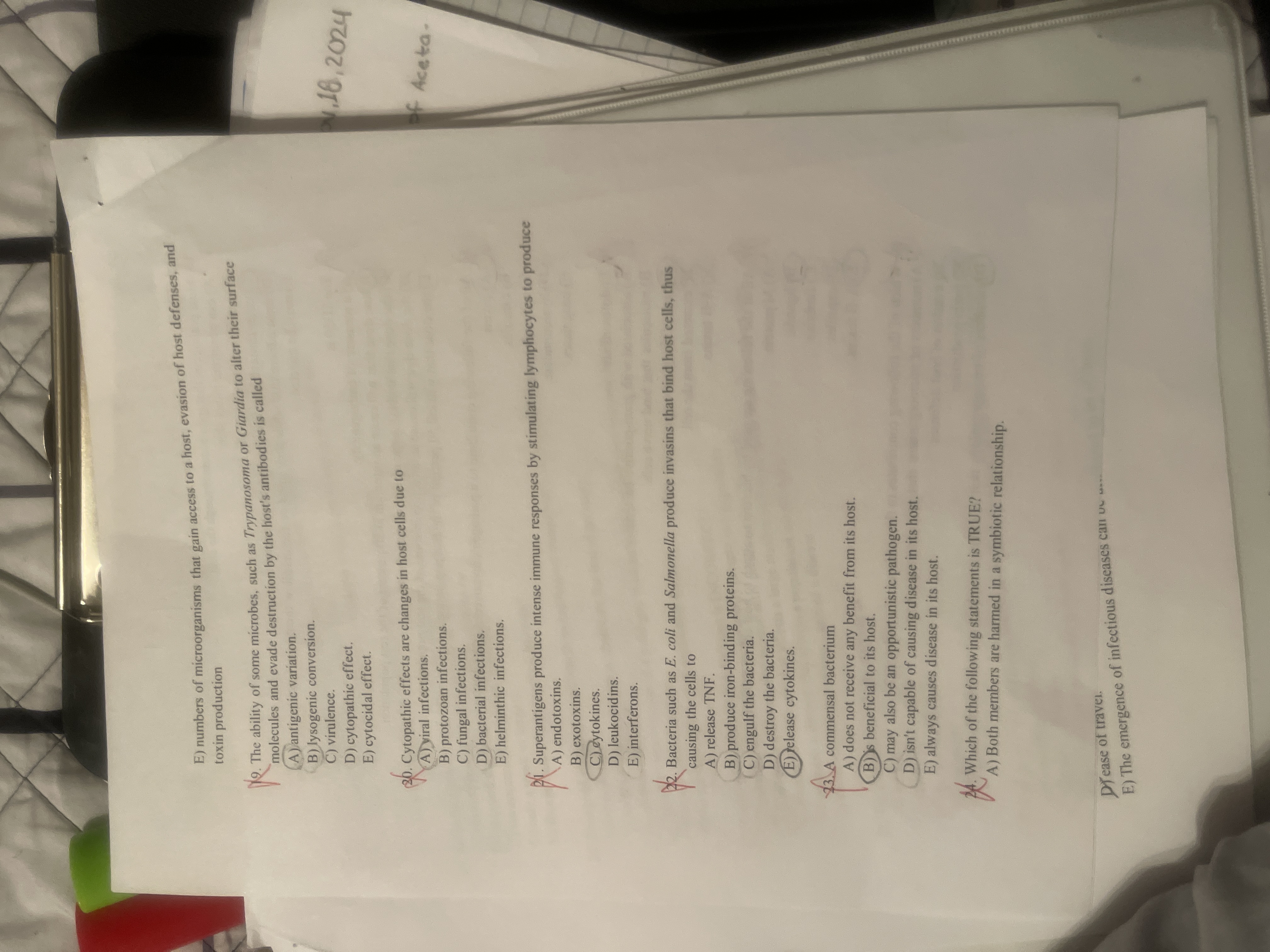The ability of some microbes, such as Trypanosoma or Giardia to alter their surface molecules and evade destruction by the host's antibodies is called: A) antigenic variation B) ly... The ability of some microbes, such as Trypanosoma or Giardia to alter their surface molecules and evade destruction by the host's antibodies is called: A) antigenic variation B) lysogenic conversion C) virulence D) cytopathic effect E) cyclopathic effect. Cytopathic effects are changes in host cells due to: A) viral infections B) protozoan infections C) fungal infections D) bacterial infections E) helminthic infections. Superantigens produce intense immune responses by stimulating lymphocytes to produce: A) endotoxins B) exotoxins C) cytokines D) leukocidins E) pyrogenic superantigens. Bacteria such as E. coli and Salmonella produce invasins that bind host cells, thus causing the cells to: A) release TNF B) produce iron-binding proteins C) engulf the bacteria D) destroy the bacteria E) release cytokines. A commensal bacterium A) does not receive any benefit from its host B) is beneficial to its host C) may also be an opportunistic pathogen D) isn't capable of causing disease in its host E) always causes disease in its host. Which of the following statements is TRUE? A) Both members are harmed in a symbiotic relationship.

Understand the Problem
The question is presenting a series of multiple-choice items related to microbiology, specifically focusing on the behaviors and interactions of various microorganisms and their effects on hosts. It asks for definitions and consequences of microbial actions.
Answer
1. Antigenic variation. 2. Viral infections. 3. Cytokines. 4. Engulf the bacteria. 5. Opportunistic pathogen. 6. False.
- Antigenic variation. 2. Viral infections. 3. Cytokines. 4. Engulf the bacteria. 5. May also be an opportunistic pathogen. 6. False, not both members are harmed.
Answer for screen readers
- Antigenic variation. 2. Viral infections. 3. Cytokines. 4. Engulf the bacteria. 5. May also be an opportunistic pathogen. 6. False, not both members are harmed.
More Information
Antigenic variation allows pathogens to escape the immune system by altering surface proteins, helping them persist in the host.
Tips
Double-check the immune response mechanisms triggered by superantigens and the role of invasins for precise answers.
Sources
AI-generated content may contain errors. Please verify critical information